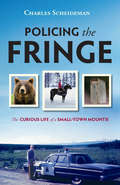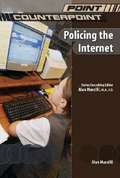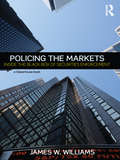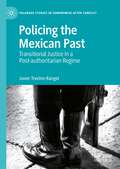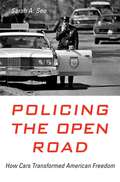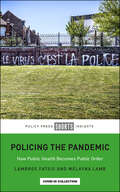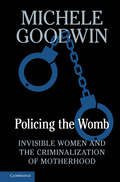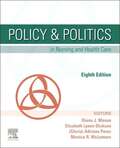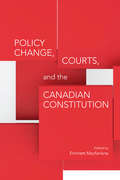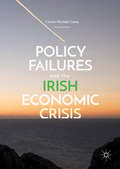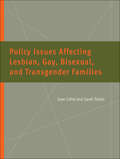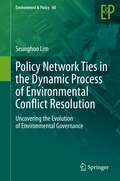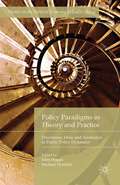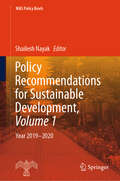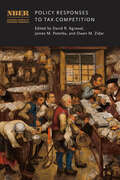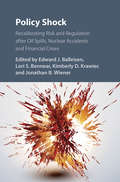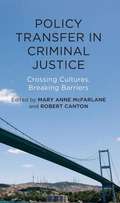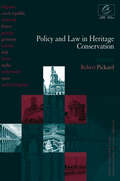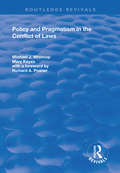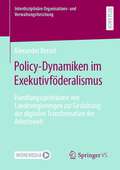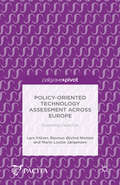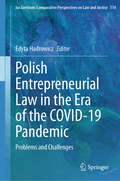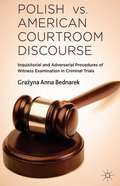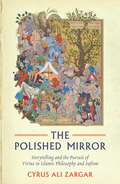- Table View
- List View
Policing the Fringe
by Charles ScheidemanFrom the 1960s through the 1980s, RCMP Sergeant Charlie Scheideman spent much of his time patrolling the "dark corners of the Interior of British Columbia" where "the citizens would meet the modern criteria for redneck: if their veranda collapsed it would kill more than four dogs; they think 'harrass' is two words, and so on." Such places weren't much fun to police but they were full of characters, many of whom make their way into Charlie's entertaining book, Policing the Fringe. We meet Walter and Wilbur, two Hixon hillbillies who went on a bender and decided it would be fun to stagger out onto the Cariboo Highway with a rifle and hold up passing cars, which worked well enough until they held up a motorhome from Alaska that turned out to be better armed than they were. We meet Petre, the hard-working hermit who was cheated out of his savings by three slick-talking mining promoters and waited to take his revenge-with an axe.With wry humour and a policeman's eye for relevant detail, Scheideman recounts events that range from the ridiculous to the horrific to the tragic. Once he stopped a car in the Fraser Canyon driven by three normally responsible American fishermen, who on this occasion were careening wildly from one guard rail to another. Their defence? They had failed to allow for the added kick of Canadian beer. His most searing memory was of waiting for the embers of a burned house to cool enough so he could retrieve the bodies of two small victims while in a nearby house, party-goers kept right on partying. One of the most revealing accounts ever written about policing in small-town Canada, this book bristles with unforgettable stories about the author's 27 years working on the RCMP's front lines. It will give readers new respect for the men and women who patrol Canada's backroads-both because of the extremely taxing work they do and the good spirit with which they do it.
Policing the Internet (Point Counterpoint)
by Alan MarzilliExamines government efforts to police the Internet and the ongoing debate between supporters of free speech and those who think that free speech on the Internet has gone too far.
Policing the Markets: Inside the Black Box of Securities Enforcement
by James W. WilliamsSet against the backdrop of the recurring waves of financial scandal and crisis to hit Canada, the US, the UK, and Europe over the last decade, this book examines the struggles of securities enforcement agencies to police the financial markets. While allegations of regulatory failure in this realm are commonplace and are well documented in policy and legal scholarship, James Williams seeks to move beyond these conventional accounts arguing that they are based on a limited view of the regulatory process and overlook the actual practices and dilemmas of enforcement work. Informed by interviews with police, regulators, lawyers, accountants, and investor advocates, along with a wealth of documentary materials, the book is rooted in a uniquely interdisciplinary social science perspective. Peering inside the black box of enforcement, it examines the organizational, professional, geographical, technological, and legal influences that shape securities enforcement as a distinctly knowledge-based enterprise. The result of these influences, Williams argues, is the production of a very particular vision of financial disorder which captures certain forms of misconduct while overlooking others, a reflection not of incompetence or capture but of the unique demands and constraints of the regulatory craft. Providing a very different, and much needed, account of the challenges faced by regulators and enforcement agencies, this book will be of enormous interest to current research on enforcement, regulation, and governance both within and beyond the financial realm.
Policing the Mexican Past: Transitional Justice in a Post-authoritarian Regime (Palgrave Studies in Compromise after Conflict)
by Javier Trevino-RangelThis book critically examines transitional justice in Mexico. It explores how the Mexican democratic regime dealt with the grave human rights violations perpetrated by security forces during the authoritarian era (1929-2000) through a Special Prosecutor’s Office. It offers a complete account of the diverse factors that facilitated the emergence (and policing) of Mexico's transitional justice process. Whilst transitional justice should contribute to the advancement of liberal democracy and, consequently, generate the following benefits: truth, justice, political reconciliation, peace, this book argues that Mexico is a case of transitional injustice. It is an example of how in some societies transitional justice mechanisms are intentionally implemented in ways that, instead of generating justice, produce impunity. It makes important contributions to some of the broader debates addressed by scholars on transitional justice and gives them reason to re-examine transitional justice processes in other countries in a new light.
Policing the Open Road: How Cars Transformed American Freedom
by Sarah A. SeoSarah Seo shows that the rise of the car, the symbol of American personal freedom, led to ever more intrusive policing, with devastating consequences for racial equality in our criminal justice system. Criminal procedures designed to safeguard us on the road undermined the nation’s commitment to equal protection before the law.
Policing the Pandemic: How Public Health Becomes Public Order
by Lambros Fatsis Melayna LambThe COVID-19 pandemic has highlighted the inadequacies of the state’s response to public health and public order issues through deeply flawed legislation. Written in the context of the #BlackLivesMatter protests, this book explores why law enforcement responses to a public health emergency are prioritised over welfare provision and what this tells us about the state’s criminal justice institutions. Informing scholarly, civic and activist thinking on the political nature of policing, it reveals how increasing police powers disproportionately affects Black people and suggests alternative ways of designing public safety beyond a law enforcement context.
Policing the Womb: Invisible Women and the Criminalization of Motherhood
by Michele GoodwinPolicing the Womb brings to life the chilling ways in which women have become the targets of secretive state surveillance of their pregnancies. Michele Goodwin expands the reproductive health and rights debate beyond abortion to include how legislators increasingly turn to criminalizing women for miscarriages, stillbirths, and threatening the health of their pregnancies. The horrific results include women giving birth while shackled in leg irons, in solitary confinement, and even delivering in prison toilets. In some states, pregnancy has become a bargaining chip with prosecutors offering reduced sentences in exchange for women agreeing to be sterilized. The author shows how prosecutors may abuse laws and infringe women's rights in the process, sometimes with the complicity of medical providers who disclose private patient information to law enforcement. Often the women most affected are poor and of color. This timely book brings to light how the unrestrained efforts to punish and police women's bodies have led to the United States being the deadliest country in the developed world to be pregnant.
Policy And Politics In Nursing And Health Care
by Diana J. Mason Adrianna Perez Monica R. McLemore Elizabeth Lynne DicksonLearn how to influence policy and become a leader in today's changing health care environment. Featuring analysis of cutting-edge healthcare issues and first-person insights, Policy & Politics in Nursing and Health Care, 8th Edition continues to be the leading text on nursing action and activism. Approximately 150 expert contributors present a wide range of topics in policies and politics, providing a more complete background than can be found in any other policy textbook on the market. This expanded 8th edition helps you develop a global understanding of nursing leadership and political activism, as well as the complex business and financial issues that drive many actions in the health system. Discussions include the latest updates on conflict management, health economics, lobbying, the use of media, and working with communities for change. With these innovative insights and strategies, you will be prepared to play a leadership role in the four spheres in which nurses are politically active: the workplace, government, professional organizations, and the community.
Policy Change, Courts, and the Canadian Constitution
by Emmett MacfarlanePolicy Change, Courts, and the Canadian Constitution aims to further our understanding of judicial policy impact and the role of the courts in shaping policy change. Bringing together a group of political scientists and legal scholars, this volume delves into a diverse set of policy areas, including health care issues, the regulation of elections, criminal justice policy, minority language education, citizenship, refugee policy, human rights legislation, and Indigenous policy. While much of the public law and judicial politics literatures focus on the impact of the constitution and the judicial role, scholarship on courts that makes policy change its central lens of analysis is surprisingly rare. Multidisciplinary in its approach to examining policy issues, this book focuses on specific cases or policy issues through a wide-ranging set of approaches, including the use of interview data, policy analysis, historical and interpretive analysis, and jurisprudential analysis.
Policy Failures and the Irish Economic Crisis
by Ciarán Michael CaseyThis book seeks to understand why almost all commentators on the Irish economy were unprepared for the scale of the recent economic crisis. It analyses the public contributions from a broad range of observers, including domestic and international agencies, academics, the newspapers and politicians. This approach gives new insights into the analytical and institutional shortfalls that inhibited observers from recognising the degree of the risk. The book demonstrates that most commentators were either impeded in what they could say, or else lacked the expertise to challenge the prevailing view. The findings have significant implications for a broad range of institutions, particularly the media and the Oireachtas (the Irish Parliament).
Policy Issues Affecting Lesbian, Gay, Bisexual, and Transgender Families
by Sean Cahill Sarah TobiasCahill is with the National Gay and Lesbian Task Force Policy Institute; Tobias is a lesbian, gay, bisexual, and transgender (LGBT) activist currently with Demos, a New York City-based think tank. They offer an up-to-date analysis of the major policies affecting lesbian, gay, bisexual, and transgender (LGBT) people, their same-sex partners, and their children. Coverage includes an overview of what is known about LGBT families and the policy issues affecting them, ranging from discrimination to domestic partnership, from health insurance access to family and medical leave; recent political and intellectual history framing the struggle over LGBT family policy; and an assessment of the extent to which the pursuit of same-sex marriage is currently reflective of the priorities of the LGBT community. For researchers, policymakers, and individuals interested in better understanding same-sex couple families in the U. S. Annotation ©2007 Book News, Inc. , Portland, OR (booknews. com)
Policy Learning in Greece and Southern Europe: The Case of EU Soft Law (International Series on Public Policy)
by Thenia VagionakiThe book explores the challenges which policymakers and organizations face while learning from ideas and policies implemented elsewhere. Drawing on empirical evidence from Greece, Spain and Italy in the context of EU soft law, it demonstrates how administrative, political and institutional conditions can act as obstacles for learning. It will appeal to scholars of public policy and public administration, practitioners and a broader audience interested in the mechanisms behind policy learning.
Policy Network Ties in the Dynamic Process of Environmental Conflict Resolution: Uncovering the Evolution of Environmental Governance (Environment & Policy #60)
by Seunghoo LimExtensive previous research has investigated environmental conflict management issues in networked settings and the design of policy networks, but the emergence and evolution of self-organizing policy networks are still not fully understood. Especially misunderstood is the problem of how the multiple motivations or incentives of competing policy actors in conflictual situations affect their structures of interaction, as this issue has not been studied systematically. This book aims to address the following research questions: how do policy stakeholders cope strategically with collective action or environmental conflict resolution? How do they utilize or maintain formal and informal policy networks to resolve problems effectively? What motivates them to engage or be involved in collaborative or conflictual networks? What influences their networking or their decisions on partner selection for conflict resolution? This book consists of four studies. The goal of the first study is to examine the form of a policy network by focusing on how policy networks emerge and evolve at the micro-level to solve collective action dilemmas endemic to decentralized and democratized policy decision-making processes, particularly in the environmental conflict resolution arena. The goal of the second study is to examine the main policy actors and structural characteristics of network governance evolution in the dynamic process of environmental conflict resolution. The goal of the third study is to highlight the role of policy tie formality in the evolution of multiplex ties in the environmental conflict resolution process. The goal of the fourth study is to demonstrate the relationships between patterns of interactions among policy actors and their modified and adjusted strategic behaviours within policy networks and across advocacy coalitions.
Policy Paradigms in Theory and Practice: Discourses, Ideas and Anomalies in Public Policy Dynamics (Studies in the Political Economy of Public Policy)
by Michael Howlett John HoganThe contributors investigate policy paradigms and their ability to explain the policy process actors, ideas, discourses and strategies employed to provide readers with a better understanding of public policy and its dynamics.
Policy Recommendations for Sustainable Development, Volume 1: Year 2019_2020 (NIAS Policy Briefs)
by Shailesh NayakThe book contains policy-related publications based on research conducted by the National Institute of Advanced Studies. These publications address and support sustainable development goals, such as energy and the environment, education, inequality, human development, and peace research, among others. This volume fosters comprehensive research focused on these global targets and endeavors to address some of society's greatest grand challenges. The book will be extremely beneficial for researchers, academicians, practitioners, and policymakers working in the areas of the 17 Sustainable Development Goals (SDGs).
Policy Responses to Tax Competition (National Bureau of Economic Research Conference Report)
by David R. Agrawal, James M. Poterba, and Owen M. ZidarA critical examination of the effects of tax competition. Policy Responses to Tax Competition provides an in-depth exploration of how jurisdictions design taxes on mobile economic factors. Tax competition between jurisdictions that seek to attract businesses and residents presents both opportunities and challenges. It can foster government efficiency and provide a counterweight to lobbying for increased spending, but it can also result in inefficiently low tax rates and revenue shortfalls as jurisdictions vie for tax bases. This volume examines the economic drivers and consequences of tax competition and presents empirical evidence on its effects. Divided into three parts, the book first reviews existing research on the determinants and consequences of tax competition and related policy initiatives such as development incentives. The second section focuses on specific policies, such as the Kansas-Missouri noncompete pact and international measures like the OECD’s Base Erosion and Profit Shifting initiative, that are designed to limit tax competition. It also considers the economic responses to these policies, the distributional impact of competition-reducing policies, and potential strategic reactions of other governments. The final section presents case studies of the effects of various policies, including inter-municipal cooperation in France and corporate tax equalization in Switzerland. Altogether, this volume provides new insights into the nature of inter-jurisdictional tax competition and the range of potential responses available to jurisdictions at various levels in federal systems.
Policy Shock: Recalibrating Risk and Regulation after Oil Spills, Nuclear Accidents and Financial Crises
by Edward J. Kimberly D. Balleisen Bennear Lori S. Krawiec Wiener Jonathan B.Policy Shock examines how policy-makers in industrialized democracies respond to major crises. After the immediate challenges of disaster management, crises often reveal new evidence or frame new normative perspectives that drive reforms designed to prevent future events of a similar magnitude. Such responses vary widely - from cosmetically masking inaction, to creating stronger incentive systems, requiring greater transparency, reorganizing government institutions and tightening regulatory standards. This book situates post-crisis regulatory policy-making through a set of conceptual essays written by leading scholars from economics, psychology and political science, which probe the latest thinking about risk analysis, risk perceptions, focusing events and narrative politics. It then presents ten historically-rich case studies that engage with crisis events in three policy domains: offshore oil, nuclear power and finance. It considers how governments can prepare to learn from crisis events - by creating standing expert investigative agencies to identify crisis causes and frame policy recommendations.
Policy Transfer in Criminal Justice
by Mary Anne Mcfarlane Rob CantonWill 'what works' in one country work in another? This unique collection examines the cross-cultural transfer of skills and expertise, drawing out the opportunities and challenges involved in taking penal practices from one country to another.
Policy and Law in Heritage Conservation (Conservation Of The European Built Heritage Ser.)
by Robert PickardThis book has been developed in association with the Cultural Heritage Department of the Council of Europe. It examines key themes and objectives for the protection of the architectural and archaeological heritage in a range of European countries. The analysis of individual countries and the group as a whole gives an assessment of how advanced current mechanisms are and the ongoing problems that remain to be managed in order to safeguard the 'common heritage'.
Policy and Pragmatism in the Conflict of Laws (Routledge Revivals)
by Richard A. Posner Mary Keyes Michael J. WhincopThis title was first published in 2001. After languishing for decades in the domains of rigid doctrinalism and confusing theory, the conflict of laws is increasingly being recognized as an important area of law to a global community. To demonstrate its importance, Michael Whincop and Mary Keyes transcend the divide between the English pragmatic tradition and the circularity of American policy-based theory. They argue that the law governing multistage conflicts can minimize the social costs of litigation, increase the extent of co-ordination, facilitate private ordering and limit regulatory monopolies and cross-border spillovers. Pragmatic in outlook and economic in methodology, they pursue these themes across a broad range of doctrinal issues and offer valuable links to parallel analyses in domestic contexts.
Policy-Dynamiken im Exekutivföderalismus: Handlungsspielräume von Landesregierungen zur Gestaltung der digitalen Transformation der Arbeitswelt (Interdisziplinäre Organisations- und Verwaltungsforschung)
by Alexander BerzelDie digitale Transformation der Arbeitswelt setzt Politik auf allen Ebenen und in verschiedenen Ressorts unter Handlungsdruck. Dieses Buch bietet einen tiefen Einblick in das dynamische Policy-Making der deutschen Länder zwischen Arbeitsmarktpolitik und Wirtschaftsförderung. Am Beispiel der digitalen Transformation der Arbeitswelt wird eruiert, wo sich Möglichkeiten der Landesregierungen für eigenständige Schwerpunktsetzungen bieten, inwiefern sich ihre Aktivitäten unterscheiden und ob die sektoralen Logiken zwischen den genannten Politikfeldern aufgebrochen werden. Dadurch dass klassische Analysewege verstellt sind, stehen neben diesen empirischen auch theoretische Fragen im Zentrum des Buchs. Aus einer doppelten Perspektive von vergleichender Policyanalyse und Föderalismusforschung heraus wird ein Analysesetting entwickelt, das in den Fokus rückt, was sonst wenig sichtbar ist: die vielfältigen Handlungsspielräume der Landesregierungen und damit die (versteckten) Policy-Dynamiken im Exekutivföderalismus.
Policy-Oriented Technology Assessment Across Europe: Expanding Capacities
by Lars Klüver Rasmus Øjvind Nielsen Marie Louise JørgensenThis book is open access under a CC-BY license. Policy-making to address grand challenges faces greater complexity than any previous project of modernization. Future scenarios are haunted by uncertainty and there is real ambivalence as to the values that policy should strive for. In this situation decision-makers look to research and innovation to provide answers and solutions. But neither can the great transitions ahead be planned by science, nor will conventional methods of innovation bring such transitions about. A turn to interactive governance is therefore underway with policy-makers and citizens becoming increasingly involved in processes of deliberating futures. Technology Assessment (TA) is the art of structuring such processes. TA goes beyond traditional expert policy analysis by systematically combining a multi-disciplinary evidence base with participatory approaches to policy deliberation. TA thus seeks to act as a hub for serious and transparent dialogue between policy, industry, science, and society about the challenges ahead and the available options for overcoming them responsibly. This volume offers an up-to-date account of the expansion of technology assessment capacities across new European member states. The contributions of this volume are written by leading European researchers and practitioners in technology assessment (TA) and are based on the PACITA (Parliaments and Civil Society in Technology Assessment) project.
Polish Entrepreneurial Law in the Era of the COVID-19 Pandemic: Problems and Challenges (Ius Gentium: Comparative Perspectives on Law and Justice #114)
by Edyta HadrowiczThe outbreak of the COVID-19 pandemic presented Polish legislators with a host of legal dilemmas, the aftermath of which resulted in numerous legislative changes. A significant part of these relate to entrepreneurial law in a broad sense. However, the situation created by the COVID-19 pandemic also had a broader dimension, resulting in the introduction of exceptions as the global norm. Similarly, in the domestic legal order, the actions of public authorities in various forms (restrictions, limitations, and ultimately the Lockdown), as well as non-legislative legal activity gave rise to many problems in Poland and have been the subject of various assessments. Hence, the book analyses the legal situation of entrepreneurs in the era of the COVID-19 pandemic both in terms of the amendments and changes introduced and the new regulations, commonly referred to in the public sphere as "covid laws" or "anti-covid shields". Therefore, the book assesses the legal solutions and the level of legislative technique in the broadly understood entrepreneurial law. It focuses on the solutions introduced by Polish legislators and seeks to answer the following questions: to what extent did the relevant public authorities appropriately respond to the threats posed by the pandemic, and did they effectively provide legal protection for entrepreneurs?
Polish vs. American Courtroom Discourse: Inquisitorial and Adversarial Procedures of Witness Examination in Criminal Trials
by Grażyna Anna BednarekPolish vs. American Courtroom Discourse brings together the fields of discourse analysis and socio-legal studies to identify, illustrate and explain the cross-cultural similarities and disparities between the inquisitorial and adversarial procedures of witness examination in criminal trials.
Polished Mirror: Storytelling and the Pursuit of Virtue in Islamic Philosophy and Sufism
by Cyrus Ali ZargarIslamic philosophy and Sufism evolved as distinct yet interweaving strands of Islamic thought and practice. Despite differences, they have shared a concern with the perfection of the soul through the development of character. In The Polished Mirror, Cyrus Ali Zargar studies the ways in which, through teaching and storytelling, pre-modern Muslims lived, negotiated, and cultivated virtues. Examining the writings of philosophers, ascetics, poets, and saints, he locates virtue ethics within a dynamic moral tradition. Innovative, engaging, and approachable, this work – the first in the English language to explore Islamic ethics in the fascinating context of narrative – will be a valuable resource for both students and scholars.
